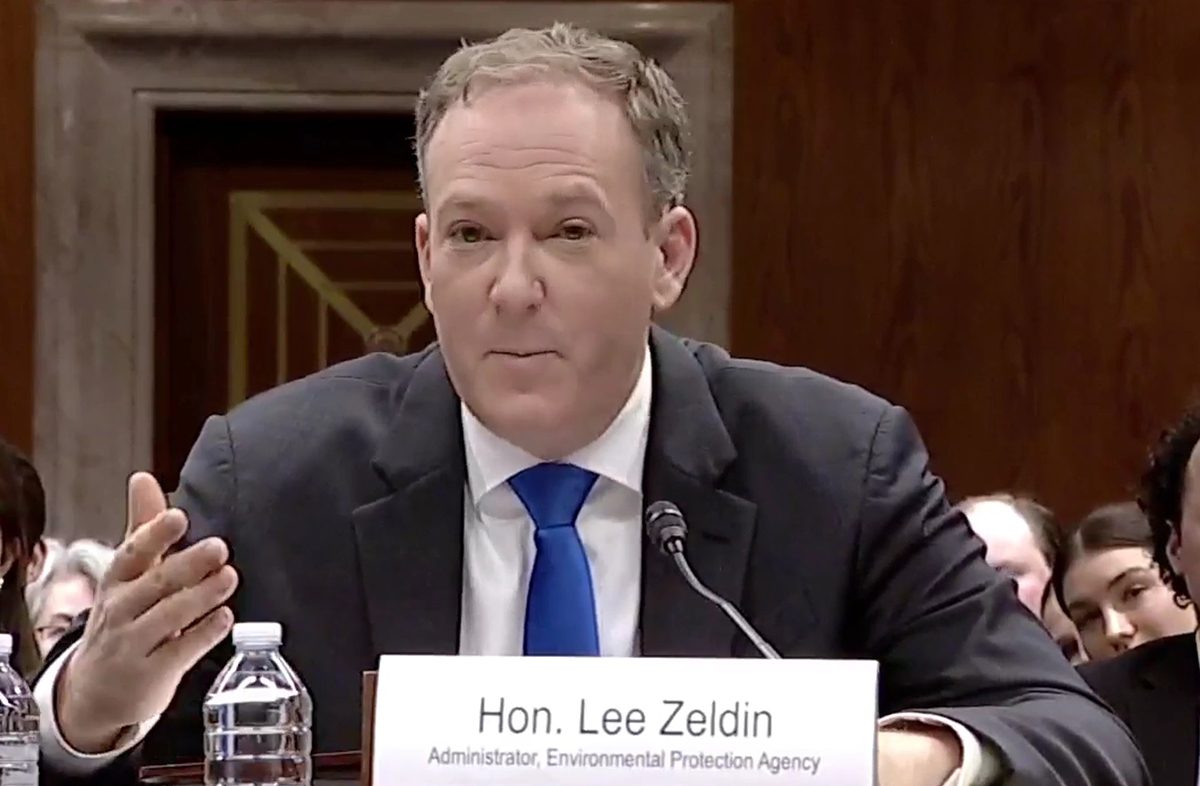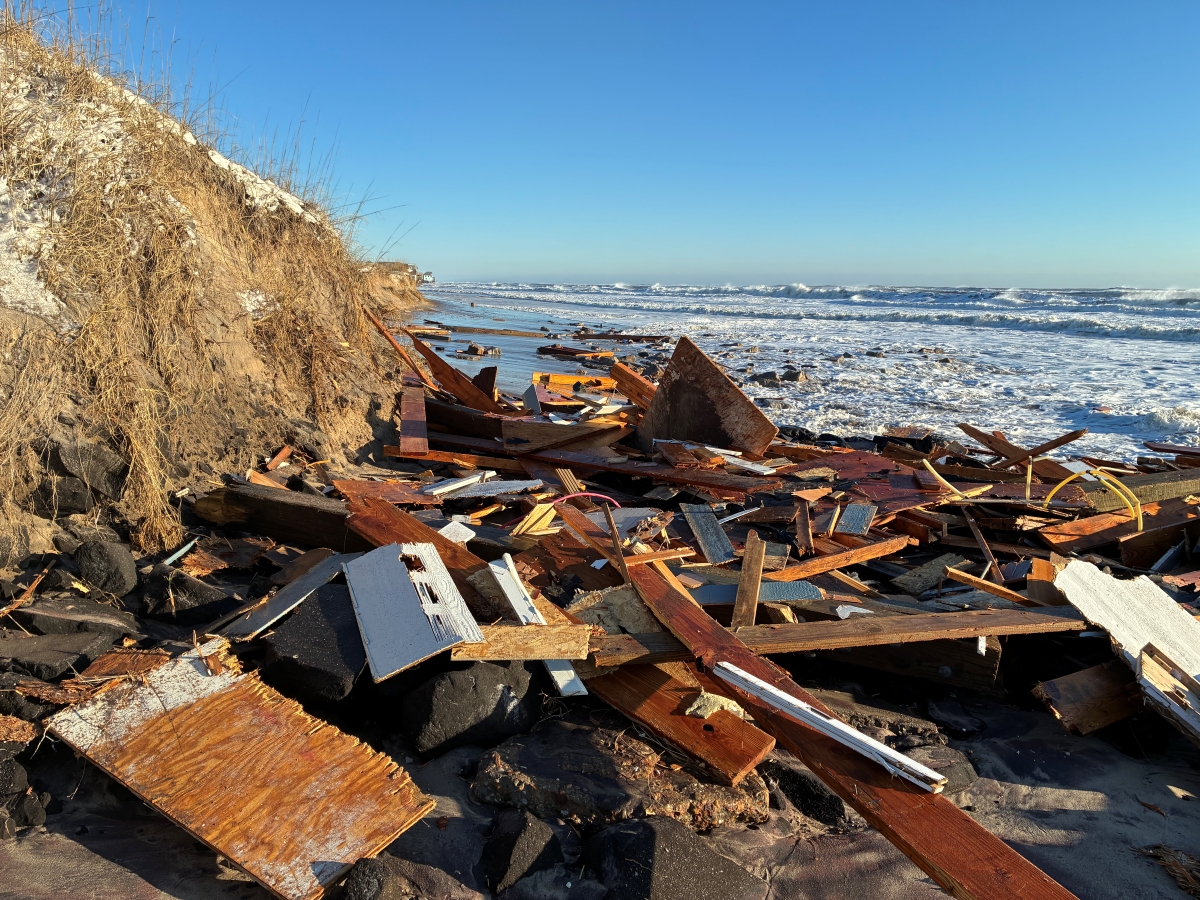
Part of a series about the effects federal budget and staff cuts and the cancellations of programs and services are having in coastal North Carolina.
The head of the Environmental Protection Agency, speaking Wednesday during a Senate budget hearing in Washington, D.C., dismissed reports that the agency was weakening standards on per- and polyfluoroalkyl substances, also called “forever chemicals.”
Supporter Spotlight
During questioning by the chair and ranking member, respectively, Sens. Lisa Murkowski, R-Alaska, and Jeff Merkley, D-Ore., EPA Administrator Lee Zeldin told the Senate Appropriations Committee that news reports about the EPA weakening PFAS were inaccurate and that the standards could instead get tougher. Zeldin said expected job cuts at the agency would not impact its work.
The senators said they were concerned about the EPA’s reductions in force, or RIFs, and its ability to meet commitments made earlier this year about tackling the compounds in soils and waters.
Related: Proposed state rules on discharges defanged as EPA retreats
Murkowski noted that the Interior Appropriations Subcommittee, which oversees EPA funding, frequently discusses PFAS.
“Last month, you announced that EPA will, quote, ‘tackle PFAS from all of EPA’s program offices, advancing research and testing, stopping PFAS from getting into drinking water systems, holding polluters accountable and providing certainty for passive receivers. You said this was just the beginning of the work that EPA is going to do to tackle PFAs,” she said.
Supporter Spotlight
She asked Zeldin whether the EPA’s operating plan budget requests “actually reflect this kind of full-forward push on PFAS and whether it includes the $10 billion that the Bipartisan Infrastructure Law funding provided to take on PFAS contamination.”
Zeldin replied that the EPA was “actually adding people” to its Office of Water, which he said does much of the agency’s work on PFAS. But Murkowski pressed further on the announced RIFs deferred resignations and how they would affect EPA’s ability to execute the plan.
“When I was in Congress, I was a member of the PFAS Task Force. I had voted for the PFAS Action Act. When I was a member of the House, I represented the district that had all sorts of different PFAS contamination issues,” said Zeldin.
Merkley did not appear swayed. He said rough counts showed EPA had lost about 400 people, who were fired within their first year, 560 in the first round of deferred resignations, 180 in diversity, equity, inclusion, and accessibility jobs who were RIF’ed. Another 1,129 exited via second round of deferred resignations, with 1,800 of opt-ins.
“Now we’re up to almost 3,000,” Merkley said. “Office of R and D, it’s rumored that would reduce to 500 positions, which would be a loss of 1,300 additional — now we’re at 4,300. I’ll just point out that for two decades, the level of employment at EPA was about 17,000. Right now, it’s about 14,000, so subtracting the numbers I just shared, we’re talking about more than 4,000 reduction from that.”
He said cutting further to the expected number of 10,000 employees “raises doubts” the agency can meet its own goals.
“It sounds like it’s at odds with your commitment to tackling PFAS and I’m concerned about the numbers,” Merkley said to Zeldin.
Zeldin responded that it was apparent that the question was in response to a news story.
“It might not come as a shock to you, but sometimes the news says stuff that’s not accurate,” Zeldin said. “That is not what the agency announced. As it relates to PFOA and PFAS, you said that we were weakening the standards, and that’s actually the opposite of what the agency actually announced.”
Zeldin said “there was an issue” pertaining to four compounds, “and that’s something that we are going to be going through a process, but that doesn’t mean that the that it gets weaker. The (maximum concentration) might end up getting lower, not higher.”
Merkley entered for the record the Washington Post story with the headline: “EPA plans to weaken rule curbing forever chemicals in drinking water.”
Zeldin said he would “encourage the committee to look at the actual announcement from EPA, as opposed to the Washington Post.”







